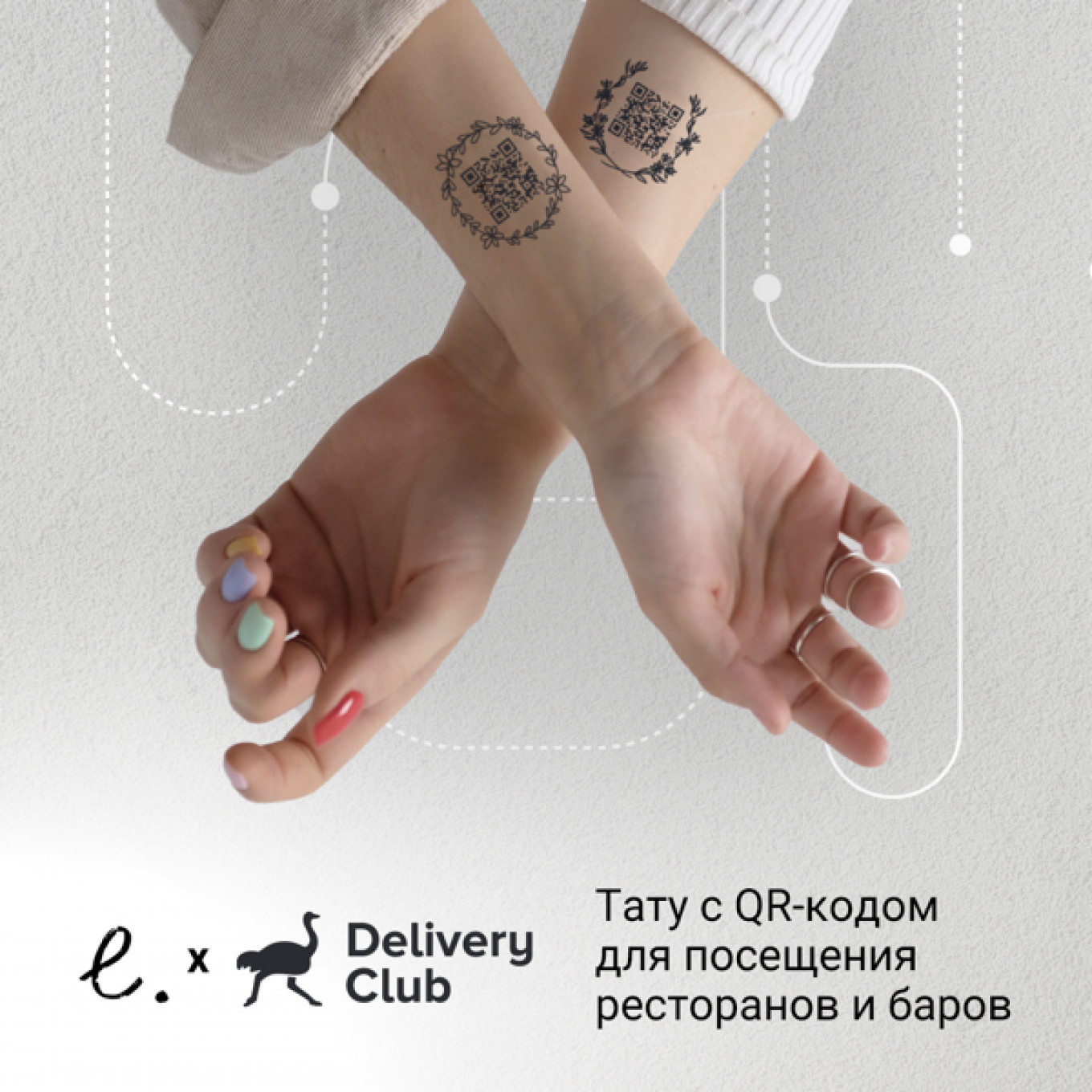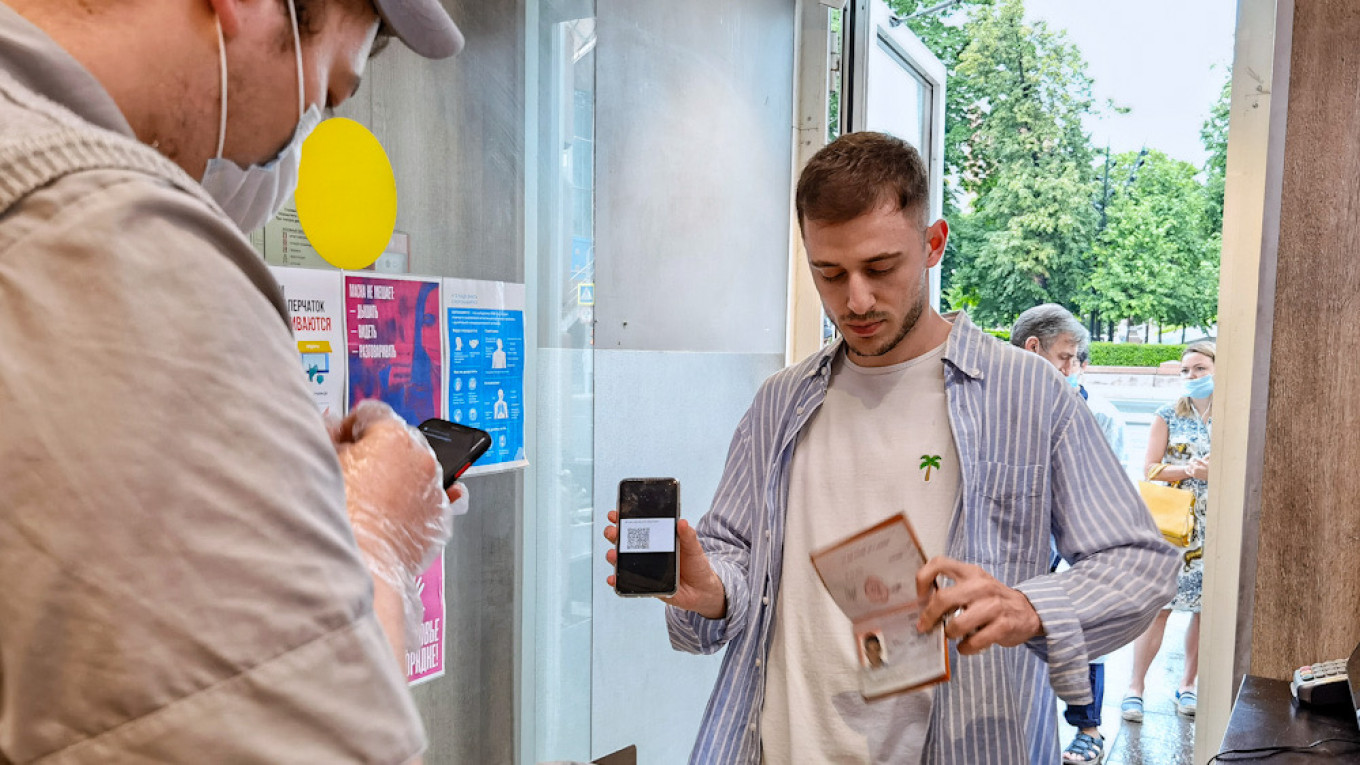Moscow’s latest tattoo trend could be your ticket into the city’s restaurants — literally.
A new project by the Delivery Club food delivery app and the Everink Tattoo online shop is giving Muscovites the chance to wear their QR codes proving their coronavirus vaccination or immunity as a temporary tattoo.

The codes, which can also be obtained with a recent negative PCR test result, are required to sit indoors at the Russian capital’s restaurants, cafes and bars. Moscow authorities introduced the new rule from June 28 in a move to clamp down on the spread of the Delta variant and push hesitant residents to vaccinate.
The temporary tattoos take out the extra step of having to take out your smartphone to scan your QR code — as you can just hold out your arm and scan the code on your skin.
“We want to ease the current tension and also make it more fun to present QR codes at the cities’ establishments,” Delivery Club’s press service told the state-run RIA Novosti news agency.
The tattoos come in six design options, including a floral design and one that says “I believe in you,” and cost 590 rubles ($8) each.
Muscovites can order the QR code tattoo through Everink Tattoo’s website and submit a link to their own personal code. In about 10 days, the tattoo will arrive to be applied to one’s skin.
The temporary QR code tattoos last for about two weeks after application. The experience could bring back fond memories for younger Russians who would get temporary tattoos as a prize with their chewing gum.
Still, the QR code by itself isn’t enough to get you into a restaurant, as tattooed patrons still need to show their ID to prove that they’re not wearing someone else’s QR code or a masterful forgery.
A Message from The Moscow Times:
Dear readers,
We are facing unprecedented challenges. Russia's Prosecutor General's Office has designated The Moscow Times as an "undesirable" organization, criminalizing our work and putting our staff at risk of prosecution. This follows our earlier unjust labeling as a "foreign agent."
These actions are direct attempts to silence independent journalism in Russia. The authorities claim our work "discredits the decisions of the Russian leadership." We see things differently: we strive to provide accurate, unbiased reporting on Russia.
We, the journalists of The Moscow Times, refuse to be silenced. But to continue our work, we need your help.
Your support, no matter how small, makes a world of difference. If you can, please support us monthly starting from just $2. It's quick to set up, and every contribution makes a significant impact.
By supporting The Moscow Times, you're defending open, independent journalism in the face of repression. Thank you for standing with us.
Remind me later.






